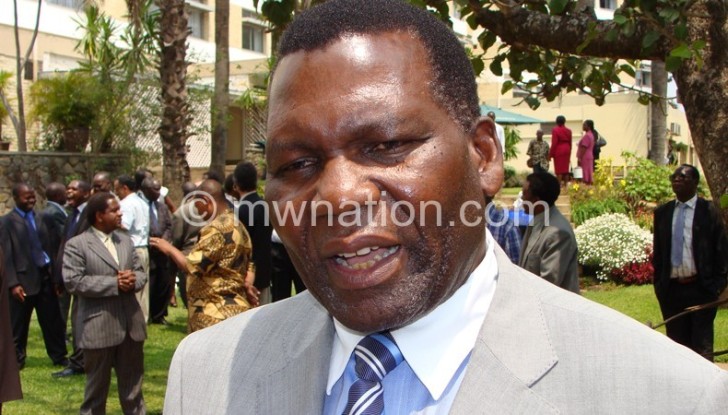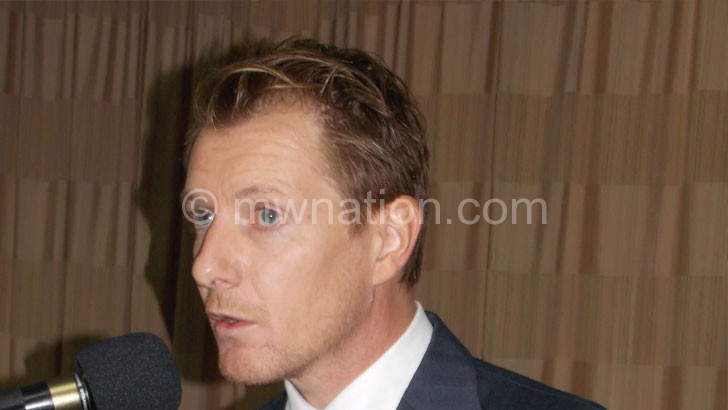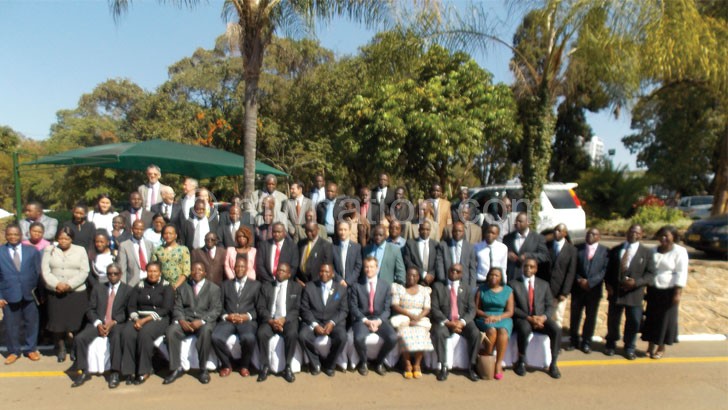Development partners push for functioning agriculture produce markets
Development partners supporting the agriculture sector in Malawi have urged Government to abandon export bans and unpredictable market interventions to guarantee functioning maize markets in the country.
Chairperson of the Donor Committee on Agriculture and Food Security Nikolas Bosscher told delegates to the Agriculture Joint Sector Review meeting in Lilongwe last week that maize prices in Malawi are volatile due to government’s interventions.
“Due to the combination of export bans and unpredictable Government interventions, maize prices in Malawi are the most volatile in the SADC region. In fact, recent studies reveal that the combination of Fisp, export bans and discretionary market interventions depress farm gate prices and inhibit the incentive to invest in maize.

“As a result, very little maize in Malawi is produced for commercial purposes. In a country where 85 percent of the population is dependent on agriculture for their income and well-being, we conclude that this situation is impeding national prosperity,” said Bosscher.
While Government is currently aiming at increasing the area under irrigation to reduce the dependence on rain-fed agriculture, the donor community has emphasised that such investments should follow a value chain approach targeting high value crops to ensure financial viability of the irrigation schemes.

Said Bosscher: “We encourage the Government to take a more holistic approach for irrigation farming to ensure sustainability. This includes adequate investments and attention to water harvesting, proper water catchment management, optimal water efficiency, cheap energy uses and private sector involvement.
Minister of Agriculture, Irrigation and Water Development Dr George Chaponda, conceded that government interventions have at times stifled the growth of the agriculture sector.
Chaponda was however quick to point out that Lilongwe will this year relax the controls in light of its partnership with the private sector, such as Illovo, to produce maize through irrigation.
“It does not make sense to ask the private sector to produce and later execute controls over their produce,” he said.
He said Capital Hill will continue to direct resources for up-scaling irrigation farming to mitigate effects of persistent irregular rainfall patterns on agriculture production.
Bosscher then pledged the donors support to the Government in assessing irrigation schemes performance so lessons can be drawn to guide all future investments.

While donors applauded the broadening of major investments in the sector to include irrigation farming, Bosscher stressed that the development of the agriculture sector requires a more balanced approach.
The donors argue that strategic investments are required in order to stimulate agricultural and economic growth as well as poverty reduction and resilience building.
Chaponda then assured delegates that attended the meeting that outstanding work on the National Agriculture Policy (NAP), the Land Bill and the Seed Act will be expedited to ensure that the agriculture sector has necessary legal, institutional, and strategic framework to support on-going reforms.
During the meeting, the Civil Society Agriculture Network (CISANET) briefed delegates on the limited awareness of the Agriculture Sector Wide Approach (ASWAp) framework amongst most non-state actors.
Cisanet director of programmes Cindy Kibombwe said the organisation organised a meeting where the ASWAp secretariat made presentations on the framework to increase awareness among the non-state actors.
But she said CISANET’s capacity to track NGOs work and resources and in the spirit of transparency and accountability developed a proposal on monitoring and evaluation which was duly approved by the technical working group and was submitted ASWAp but it did not get the nod of the Ministry of Agriculture, Irrigation and Water Development.
Head of ASWAp secretariat Nelson Mataka clarified that it was difficult to factor in the project into the current work plan and added that not all projects proposals will be funded by ASWAp.
Mataka also advised Cisanet to collaborate with development partners for a possible funding for the organisation to undertake the monitoring and evaluation of NGOs contribution to ASWAp which Cisanet believes will not only help Government in its planning and resource allocation per district per ASWAp pillar but will also help development partners when prioritising their district operations.





